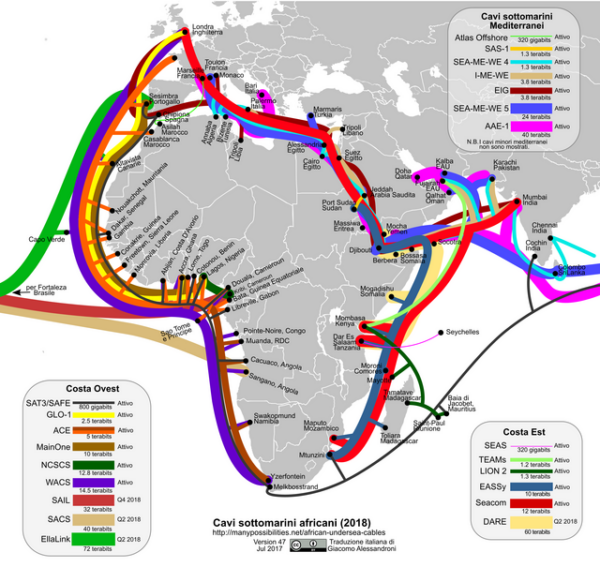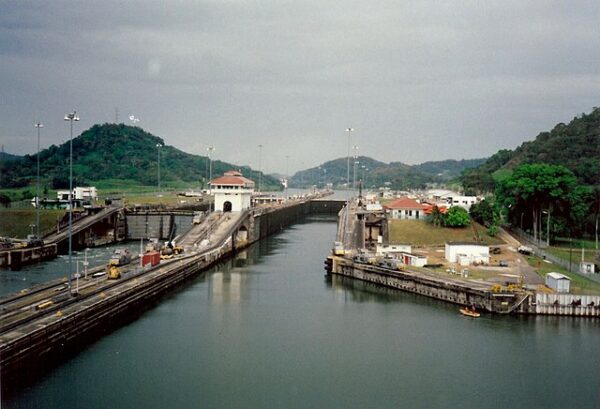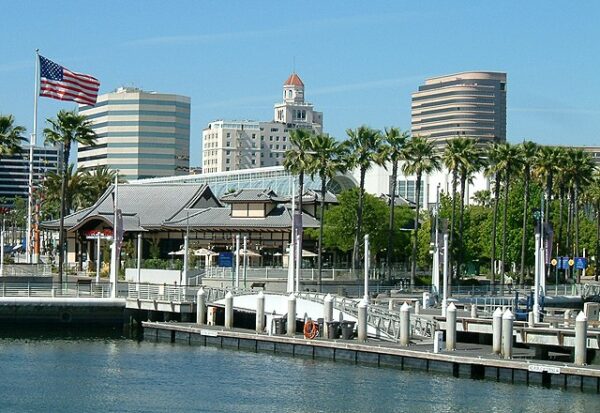Internet connectivity across Asia and the Middle East faltered this weekend after damage to multiple undersea cables in the Red Sea, raising alarms over the vulnerability of critical infrastructure in a region already on edge.
Microsoft, on its status website, warned that the Middle East “may experience increased latency due to undersea fiber cuts in the Red Sea,” reported The Associated Press. The tech giant, headquartered in Redmond, Washington, added that traffic rerouted around the region remained unaffected but gave no explanation for the cause.
Independent monitors confirmed the disruptions. NetBlocks said that “a series of subsea cable outages in the Red Sea has degraded internet connectivity in multiple countries,” with India and Pakistan among the most affected. The failures hit the South East Asia–Middle East–Western Europe 4 (SMW4) cable, operated by Tata Communications, and the India-Middle East-Western Europe (IMEWE) line, overseen by a consortium led by Alcatel-Lucent. Neither company responded to requests for comment.
National providers acknowledged the impact. Pakistan Telecommunications Co. Ltd. said on Saturday that the cuts were behind the service degradation. In the United Arab Emirates, customers on the state-owned Du and Etisalat networks complained of slower speeds, though officials in Abu Dhabi remained silent. Saudi authorities, too, offered no statement.
Undersea cables form the backbone of global internet infrastructure, carrying the vast majority of the world’s digital traffic. When severed, providers scramble to reroute data, often causing bottlenecks. Repairs require specialized ships to locate and mend the fiber, a process that can stretch into weeks. Such damage can result from routine hazards like ship anchors or from deliberate acts.
The timing has fueled suspicion. The Red Sea has been the stage for more than a year of maritime assaults by Yemen’s Houthi rebels, who have targeted international shipping to pressure Israel over its war with Hamas. Between November 2023 and December 2024, Houthis struck more than 100 vessels, sinking four and killing at least eight sailors, wrote The New York Post. Early last year, Yemen’s exiled government accused the group of plotting to sabotage undersea cables, allegations the Houthis denied.
This time, however, the Houthi-affiliated al-Masirah news channel acknowledged the recent outages, citing NetBlocks. The Iran-backed movement briefly paused attacks during a U.S.-brokered truce but resumed after American airstrikes ordered by President Donald Trump. Trump later declared a ceasefire.
The disruption comes as regional diplomacy hangs in the balance: Israel and Hamas are edging toward possible ceasefire terms, while Washington and Tehran remain locked in uncertainty after Israel’s 12-day strike campaign against Iranian nuclear facilities..
[Read More: Kilmar Garcia To Be Sent To Random African Country]











Can same happen here??